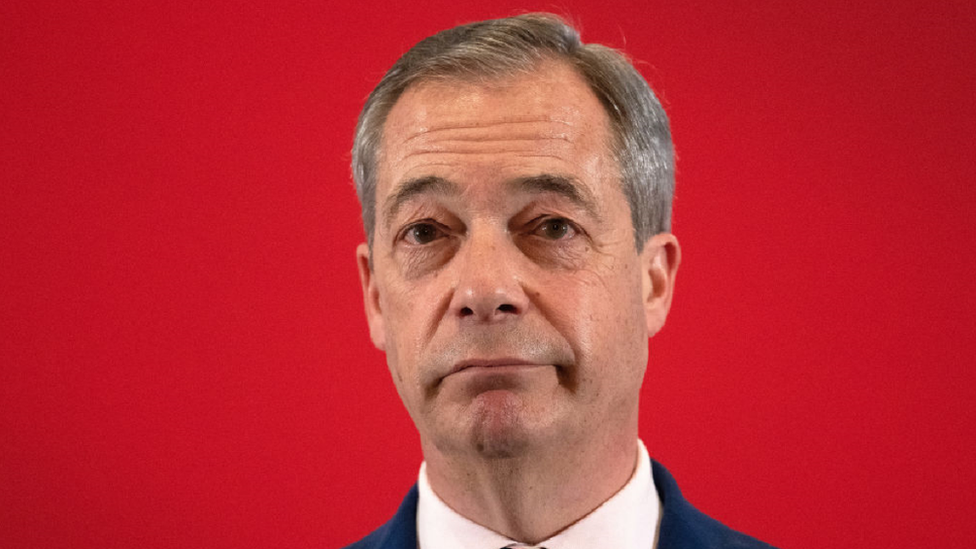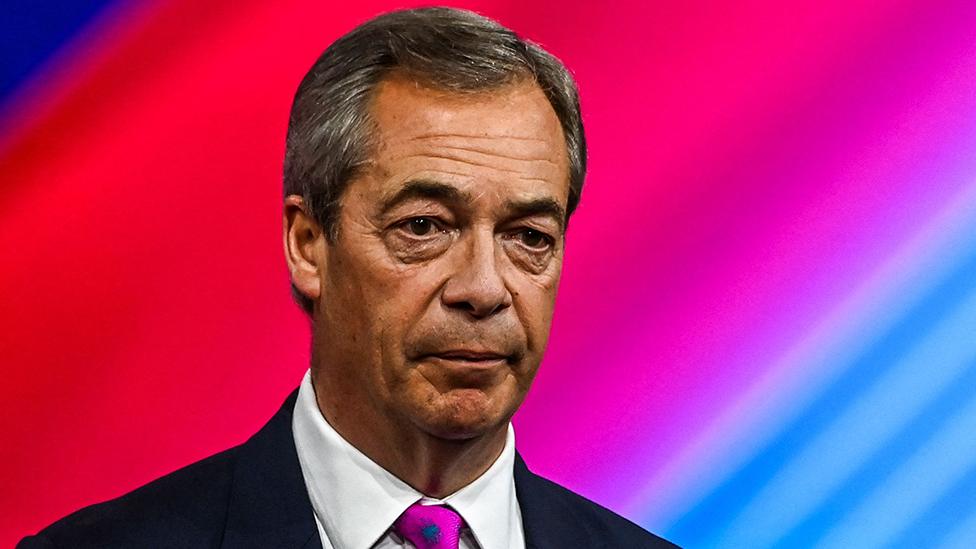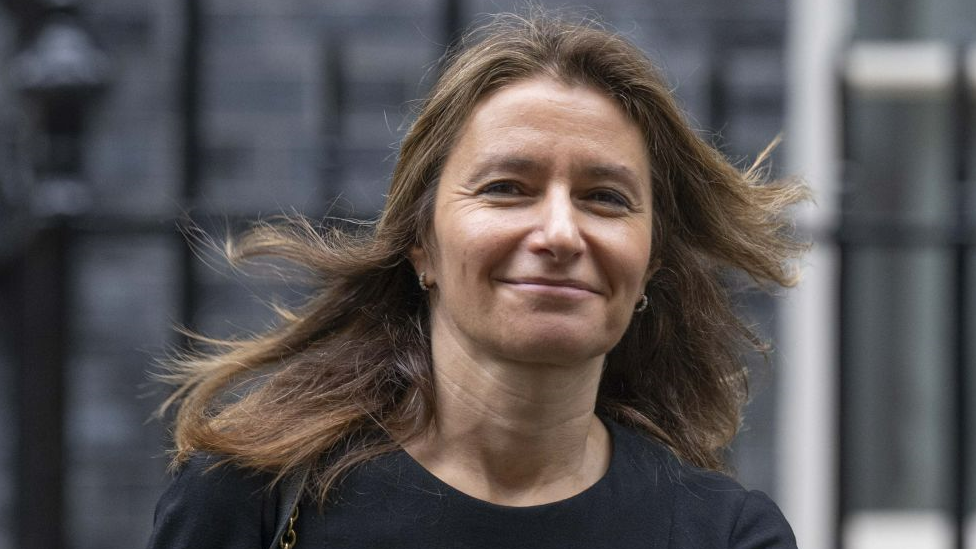Nigel Farage says more NatWest bosses must go in Coutts row
- Published

Nigel Farage has called for the whole NatWest board to follow boss Dame Alison Rose in quitting as the row over his bank account closure escalated.
The ex-UKIP leader told BBC Breakfast it was "right" that Dame Alison quit but said the board "should all go".
Dame Alison quit abruptly early on Wednesday after admitting she had made a mistake in speaking to the BBC about Mr Farage's relationship with the bank.
It came after the chancellor expressed significant concerns over her conduct.
Natwest chair Sir Howard Davies said just hours before Dame Alison resigned that it was in the interest of shareholders and customers that she stayed on as chief executive despite admitting she had made a "serious error of judgement".
The BBC has been told Sir Howard intends to remain on until the middle of next year when he is expected to retire.
Mr Farage said: "She's gone and it is right that she has gone. However, I think this brings into question the whole of the board. Frankly, because of how they have behaved, I think they should all go."
City minister Andrew Griffith said that since Sir Howard was already on his way out, there was no need for him to resign.
"There's already a search under way... for his replacement," said Mr Griffith. "We should let that continue and then in due course, obviously, the bank will need to appoint a new chief executive."
Mr Griffith said it was important that lessons are learned from what has happened at NatWest, which is 39% owned by the taxpayer.
"It's not the job of the bank to tell us what to think or what political party we should support."
Mr Farage, the former leader of the UK Independence Party and a Brexiteer, said in early July that his account at private bank Coutts - which is owned by NatWest - had been closed and that he had not been given a reason.
How the Farage bank row unfolded
29 June: Mr Farage posts a video on Twitter, external, claiming he had been told his bank accounts would be closed. He does not name the banking group at this stage but says he has been a customer since 1980. He says he was told it was a "commercial decision" but he did not believe it
4 July: BBC article runs suggesting Mr Farage fell below the financial threshold needed to hold an account with Coutts. Mr Farage confirms Coutts is the bank in question and says at "no point" had he been given a minimum threshold and calls it a "political decision"
18 July: Mr Farage posts another video, external, saying he has obtained documents showing Coutts decided to close his account because his views "do not align with our values"
19 July: The Telegraph reports Dame Alison sat next to business editor Simon Jack at charity dinner the day before the BBC story was published
20 July: First apology by Dame Alison for "deeply inappropriate comments". She says that the documents prepared for the Wealth Reputation Risk Committee "do not reflect the view of the bank"
21 July: The BBC changes the headline and copy in its original story saying Mr Farage fell below the financial threshold needed to hold an account with Coutts to say the claim had come from a source and added an update to recognise the story had changed
24 July: Simon Jack and Deborah Turness, chief executive of BBC News, apologise to Mr Farage
25 July: NatWest releases a statement saying Dame Alison had made a "serious error" but that the board still had "full confidence" in her, external
26 July: Dame Alison resigns. Mr Farage calls on the whole NatWest board to go.
Mr Farage had highlighted to the BBC what he said was a discrepancy between the BBC's apology on Monday from its chief executive Deborah Turness, which said the BBC had gone back to the source to check the information, and NatWest's statement on Tuesday.
"There is no way, if the BBC went back for a second time to confirm the story, that they [the BBC] would not have checked that it was the balance of my account that led to that commercial decision," he said.
Public trust
On Wednesday, economic secretary Andrew Griffith had a meeting with some of the largest banks and building societies "to discuss the importance of protecting lawful freedom of expression for customers".
The Treasury said bank bosses had acknowledged that "recent events" had hit "public trust for the whole sector".
The bosses agreed to bring bank policies in line with planned rules to make it easier for customers to find out why their bank accounts had been closed and challenge the decisions.
The data protection regulator also joined the debate, pointing out that people trusted banks with their money and personal information.
Information Commissioner John Edwards said any suggestion this trust had been betrayed would be "concerning for a bank's customers, and for regulators like myself".
He said he had written to banks to "remind them of their responsibilities to the public". These included not holding "inaccurate information" and not using information in a way that was "unduly unexpected." Mr Edwards added banks should also not be holding "any more information than is necessary".
"Even the information banks gather around politically exposed persons must follow the law," he said.
Related topics
- Published24 July 2023

- Published3 July 2023
